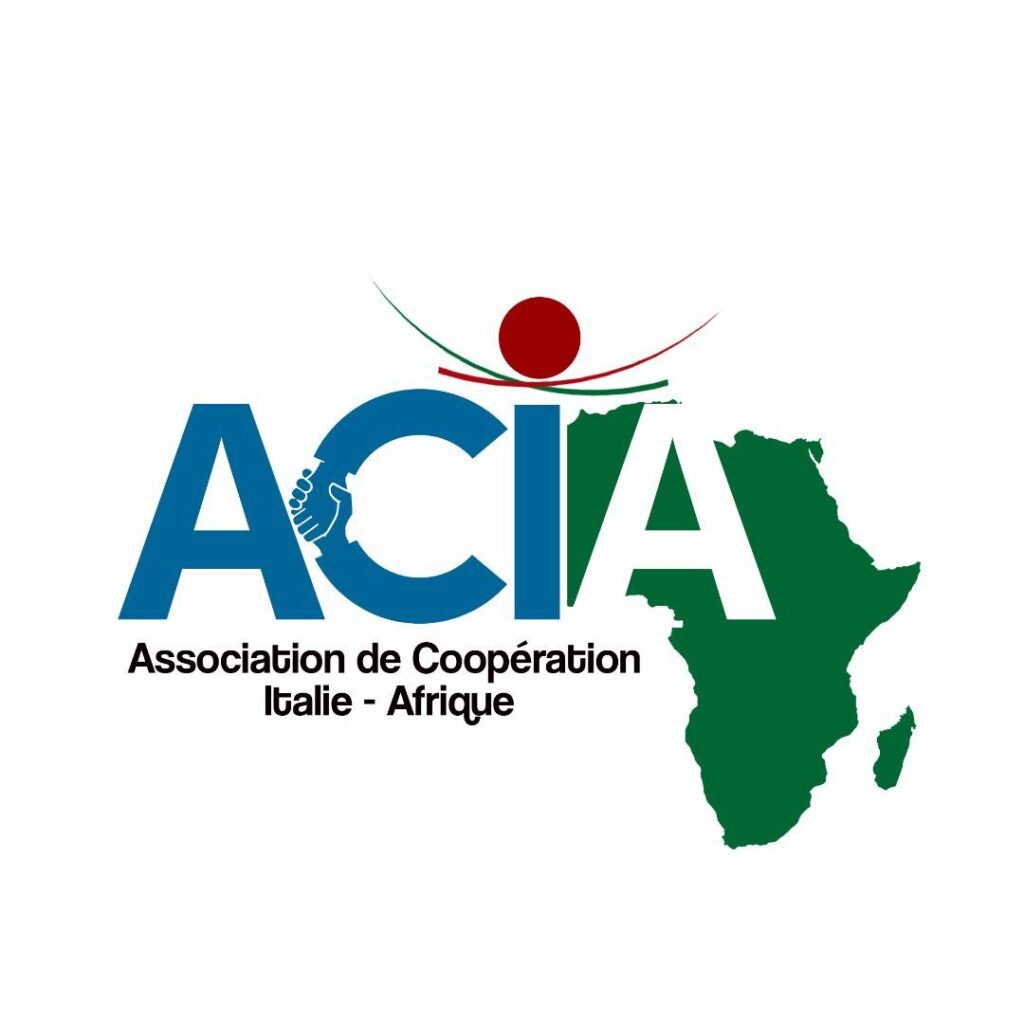A New Chapter for Africa in Space
20 April 2025 marks a historic date for the African continent: the inauguration ceremony of the African Space Agency (AfSA) at the Egyptian Space City in Cairo represents the culmination of a journey that began almost a decade ago and is set to change the face of African science and technology. AfSA was created with the ambition to coordinate, promote and develop the space activities of the African Union's member countries, offering a continental response to the challenges and opportunities offered by space.
From Vision to Realisation
The idea of African space cooperation has deep roots. In January 2016, during the 26th ordinary session of the African Union Assembly, the African Space Policy and Strategy was adopted, the first strategic document that enshrined the need for a coordinated approach to space activities13. In the following years, political discussions, technical assessments and diplomatic negotiations led to the adoption of the Agency's Statute in 2018, with Egypt being chosen as the host country in 2019.
The AfSA headquarters, built in New Cairo next to the Egyptian Space Agency, is the beating heart of this new venture, ready to house research centres, satellite production facilities and training spaces.

Objectives and Mandate: Coordinate for Growth
AfSA was created with a clear mission: not to replace the existing national agencies, but to act as a catalyst and coordinator of the space policies of the African Union member states. Its role is to:
- Promoting cooperation between agencies and national programmes.
- Develop common strategies for the use of space technologies for the benefit of socio-economic development.
- Facilitating the sharing of data, infrastructure and expertise.
- Strengthening Africa's position as a stakeholder in the global space landscape.
The agency acts as a point of reference for international collaboration, particularly with Europe and other space powers, and aims to eliminate duplication and inefficiencies within the African space ecosystem.
A Continent on the Rise: Data and Successes
Over the past twenty years, more than twenty African countries have established space programmes, a sign of a growing awareness of the strategic value of space technologies24. Since Egypt launched NileSat 101 in 1998, the continent has put more than 50 satellites into orbit, used for telecommunications, environmental monitoring, meteorology and natural resource management. The main players are Algeria, Angola, Egypt, Kenya, Morocco, Nigeria and South Africa, but the list is constantly growing.
Projects such as the African Resource Management satellite constellation, launched in 2003 by Algeria, Kenya, Nigeria and South Africa, demonstrate how regional collaboration is the key to optimising resources and sharing knowledge.
Challenges to be faced
Despite progress, the African space sector still faces significant obstacles:
- Limited funding: The economic sustainability of space programmes remains a challenge, with investments often lower than those of global competitors.
- Training and human capital: The shortage of highly qualified personnel and the need to develop advanced technical skills are problems felt in many countries.
- Infrastructure: Many nations have yet to equip themselves with adequate research centres, production facilities and launching facilities.
- Coordination: Avoiding duplication and fragmentation requires an ongoing commitment to cooperation between agencies and governments.
The strategy adopted by the African Union in 2016, and now implemented by AfSA, aims precisely at strengthening continental capacity through investments in training, infrastructure development and international partnerships.
An Agency for Sustainable Development
AfSA is not only a symbol of technological progress, but a tool to address the great challenges of African development. Space applications are crucial for:
- Natural resource management: Satellite data enable effective monitoring of water, soil, forests and mineral resources, helping to prevent conflicts and promote sustainable management6.
- Precision farming: Space technologies make it possible to optimise agricultural yields, monitor weather conditions and prevent famine.
- Emergency management: Satellites and observation systems are crucial for prevention and response to natural disasters such as floods, fires and droughts.
- Connectivity and digital inclusion: Satellite infrastructure is essential to bring internet and digital services to rural and isolated areas, reducing the digital divide.
The Inauguration: An Event with a Global Breath
The AfSA inauguration ceremony, scheduled for today, 20 April 2025, will be attended by representatives of the African Union, national governments, space agencies, international organisations and academia. Guests of honour will include the chairman of the African Union Commission, the Egyptian Prime Minister and ministers from various African countries. The event will be enriched by the screening of a documentary tracing the history of African space activities, from the beginnings of national programmes to the birth of AfSA.
The programme will also include a keynote by Dr Valanathan Munsami, former chair of the African Union Working Group on Space, who will outline the challenges overcome and the cooperation models adopted in setting up the agency.

Governance and Structure
The AfSA was conceived as an African Union body, with multi-level governance involving representatives of member countries, technical experts and a governing council. Initial funding was also secured thanks to Egypt's contribution of USD 10 million to support the start-up phase.
The operational roadmap envisages growth in phases, with the gradual integration of national, regional and continental activities, and the setting of clear targets and performance indicators to measure impact on the African economy and society.
International Partnerships and Collaborations
One of the cornerstones of AfSA is international collaboration. The agency will be the main point of contact for cooperation between Africa and European, Asian and American space agencies. Partnerships with the European Space Agency (ESA) and the European Union are already underway, with the aim of sharing technologies, data and best practices.
In addition, AfSA promotes the creation of research and training networks, such as the future Pan-African University of Space Science and Technology, which is due to be built in South Africa, although the project has been delayed.
The Future: A Protagonist Africa in Space
Looking ahead, the AfSA has two major strategic goals:
- Using space products and services for informed decisions in the economic, political, social and environmental fields.
- Developing an indigenous spatial capacityin both the public and private sectors, for a coordinated, effective and innovative African space programme.
The agency aims to be a driver of innovation, competitiveness and efficiency, promoting a vision of space as a tool in the service of sustainable development, the fight against climate change and inclusive economic growth.
A Dream Come True, a Challenge to Be Won
The inauguration of the African Space Agency is not just a symbolic milestone, but the beginning of a new era for Africa. A continent that, after decades of marginalisation in the great global technological challenges, chooses to be a protagonist, to invest in research, innovation and cooperation. The challenges are many, but the direction is clear: space as an engine of development, inclusion and progress for all Africans.
"Africa finally has an instrument to speak with one voice in space. The AfSA is the promise of a future in which the continent will no longer be just a spectator, but a leading actor in the new space race."
With this awareness, Africa looks to the sky not only as a border, but as a horizon to be conquered.
Quotes:
- https://en.wikipedia.org/wiki/African_Space_Agency
- https://furtherafrica.com/2024/11/12/advancements-in-african-space-programs-collaboration-and-growth/
- https://spaceinafrica.com/2025/04/14/inauguration-of-the-african-space-agency-a-milestone-for-africas-space-development/
- https://360mozambique.com/world/africa/advancements-in-african-space-programmes-collaboration-and-growth/
- https://satelliteprome.com/news/african-space-agency-to-be-officially-inaugurated-at-newspace-africa-conference-2025/
- https://gmes4africa.blogspot.com/2025/02/the-future-of-african-space-agency-afsa.html
- https://news.satnews.com/2023/01/30/auc-inaugurates-the-african-space-agency/
- https://riotimesonline.com/regional-partnerships-fueling-space-innovation-in-africa/
- https://spaceinafrica.com/2023/10/25/updates-on-the-african-space-agency/
- https://www.stimson.org/2023/who-woke-the-sleeping-giant-africas-emerging-space-programs-take-off/
- https://www.unoosa.org/documents/pdf/psa/activities/2019/UNChinaSymSDGs/Presentations/SALEY_African-Space-Policy-and-Strategy.pdf
- https://arc.aiaa.org/doi/10.2514/6.2021-1111
- https://lu.ma/kzfjpayq
- https://www.stimson.org/2023/who-woke-the-sleeping-giant-africas-emerging-space-programs-take-off/
- https://www.linkedin.com/pulse/africas-promising-space-agency-spaceinafrica-s57cf
- https://africanews.space/auc-inaugurates-the-african-space-agency/
- https://www.linkedin.com/pulse/growing-african-space-collaborations-spaceinafrica-0vmaf
- https://aeromorning.com/en/africas-promising-space-agency/
- https://en.wikipedia.org/wiki/History_of_space_in_Africa
- https://www.atlanticcouncil.org/blogs/africasource/why-the-united-states-needs-a-robust-strategy-for-space-cooperation-with-africa/
Business Consultant | New Global Business and Internationalisation Expert
Specialised in accompanying companies to global markets, I combine academic and operational skills to develop effective and sustainable internationalisation strategies. With a focus on innovative business models, transnational contracting and corporate social responsibility, I help companies navigate the complexities of emerging markets and informal economies.
Academic Profile
Master's Degree in Economics and International Finance with experience in Swiss and global contexts, is adjunct professor at the Catholic University of the Sacred Heart (Brescia) from 2021. He teaches:
-
International Contractslegal frameworks for operating in complex markets.
-
Informal economy in developing countriesCritical analysis of socio-economic dynamics and market opportunities.
-
Management of local and global enterprisesOperating models for 'Born Global' companies and integration of digital technologies.
Practical approach
I work with SMEs and multinationals for:
✔ Reducing cultural and logistical barriers through digital tools (OMS, ERP, 3D platforms).
✔ Implementing multiplication strategies for expansion into priority markets, with case studies in the US, UAE and Asia.
✔ Integrating social responsibility in business plans, with a focus on ethical supply chains.
Objective of the blog
Sharing insights on new global business models, practical cases of internationalisation and technological trends that are revolutionising cross-border trade.
'Success in the global economy requires not only technical expertise, but a systemic vision that combines digital innovation, cultural adaptation and sustainability'.
For collaboration or consultancy: Link






